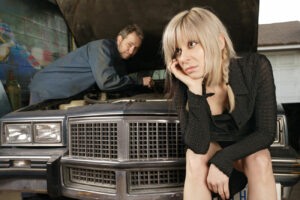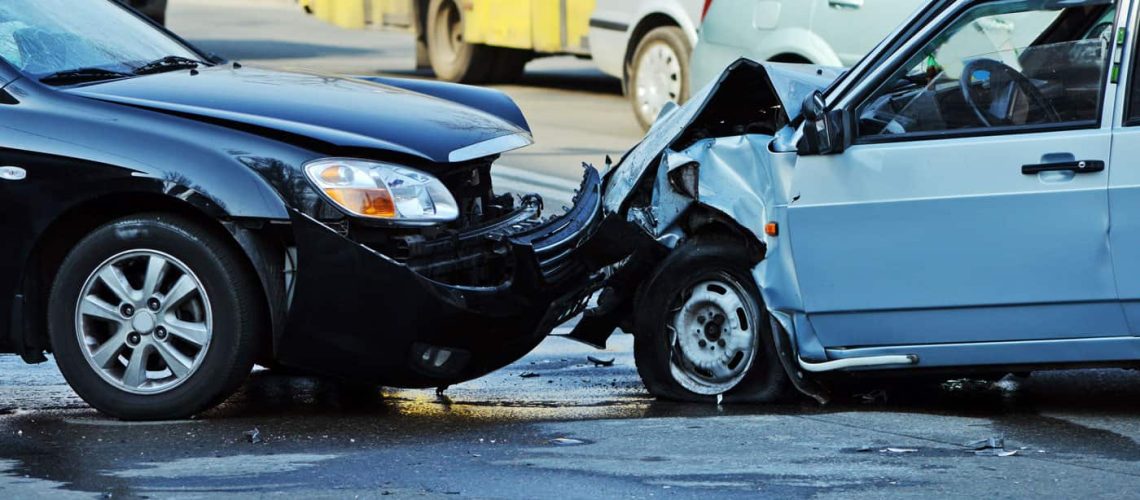By definition, a car is totaled if the cost of repairs is more than the actual cash value (ACV) of the vehicle, and will not be covered on your insurance policy. If a car has been damaged in an accident and your insurance company determines that it’s safer and more cost-effective to scrap it than repair it, then they will declare your car totaled (as in, a “total loss”).
It’s important to remember that not all auto repair or auto body service is covered by comprehensive or collision coverage, so even if your car has been significantly damaged, you may not be eligible for a total loss payout. Additionally, some policies may only pay out up to a certain amount for the vehicle’s Actual Cash Value (ACV), which could be less than the amount you owe on your loan.
In most cases, if your car is declared a total loss, the insurance company pays the ACV minus any deductible. If this isn’t enough to cover what you owe on your loan, it is important to read through your policy carefully and contact your insurance company to discuss different options available to you.
Signs Your Car Is Totaled

You Can’t Even Drive It
If your car is so damaged that it won’t start or you are unable to drive it, this may be a sign that you now have a totaled vehicle. Things to watch out for include:
- Doesn’t start
- Starts but doesn’t stay on
- Warped and bent parts (interior and exterior)
- Noticeable odors coming from the vehicle
- Anything obstructing your view
- Steering wheel pulling hard to one side
- Loud sounds coming from the engine
Generally speaking, if you can’t even drive your vehicle, the cost of repairs likely exceed the value of the car itself.
Fluid Leaks
Excessive fluid leaking from the vehicle is a sign your car may be totaled. For instance, if you notice antifreeze or oil dripping out of your car, this could mean that an internal part of the engine has been damaged and would need to be replaced. Additionally, checking under the hood for any unidentified fluids leaking can help identify if there is a major problem with your vehicle.
Damage Does Not Make Economic Sense To Repair
One key indicator to watch out for when determining whether or not your car is totaled is the cost of repairs versus the value of the car itself. If it costs more money than what the car is worth to repair, then it doesn’t make economic sense to do so and your insurance company will likely deem it a total loss. In this case, the insurance company is likely to offer you a settlement that is equal to the value of your car before it was damaged.
Checking The Safety And Structural Damage
It is also important to inspect for any structural or safety damage on your vehicle. If there is any significant damage to the frame or other major components, then it could make the car unsafe and thus be declared a total loss. It’s best to have an expert inspection done by a mechanic or auto body shop to determine whether repairable damages do exist or if it would be better off declared totaled instead.
Replacing Parts Versus Repairing Them
Finally, a major factor to consider is whether replacing parts makes more sense than repairing them. For example, if the drivetrain has been damaged, then it might be more cost-efficient to get a new transmission or differential instead of trying to repair the old one. Ultimately, you want your car to be safe and reliable after the accident, so don’t just go for the cheapest option without considering all of your options first.
Additional Indicators Of Totaling
In addition to extensive damage and the cost of repairs, there are a few other indicators that can help you determine whether or not your car is a total loss after an accident.
For instance, if the vehicle has been in an accident before and was deemed a salvage, then it will likely be declared totaled this time around. Additionally, if the car has an age or mileage that is significantly above the average for similar models, then its value may be low enough to make it a total loss.
Conclusion

In conclusion, when dealing with an insurance company after a car accident, there are many factors that need to be taken into account including assessing damage, getting estimates from auto shops and checking for safety and structural damage. Additionally, consider whether replacing parts makes more sense than repairing them in order to get the most out of your comprehensive coverage.
Following these steps will help ensure that you receive fair compensation and can get back on the road quickly.






